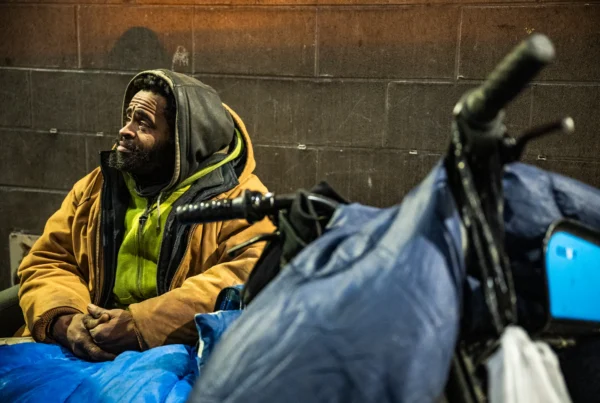As a result, Chicago’s spending to alleviate homelessness has lagged woefully behind other major U.S. cities with large homeless populations over the decades. We spend only five percent of what New York City spends per homeless person, and a mere three percent of what Los Angeles spends per person.
This troubling pattern has culminated in the dilemma we face today, where the scale of the city’s homeless problem remains unchecked, embodying the front lines of an escalating affordable housing crisis.
But we also have a historic opportunity to change this pattern for good.
As state legislators representing Chicago, we were heartened when, during their recent campaign, Mayor Lori Lightfoot and several other candidates for mayor championed a plan to reverse the cycle of under-funding homelessness relief. As it has been well-documented, the mayor originally proposed raising the city’s one-time Real Estate Transfer Tax (RETT) to bolster funding for programs that reduce homelessness by expanding affordable housing.
Of course, it’s also well-documented that Chicago is reeling from a budget deficit that continues to mushroom. Facing the mounting onus of all that red ink, the mayor changed course and proposed diverting revenues from the RETT increase into the city’s general coffers.
With that concept now pending in Springfield, we believe there is a way to amend Mayor Lightfoot’s proposed RETT increase to produce a win-win outcome for both deficit reduction and homelessness relief. Under a proposal we submitted to the Mayor’s office last week, both of these crucial imperatives could be served within the scope of the mayor’s graduated RETT structure.
How would it work? We proposed altering the structure of the mayor’s proposed RETT increase by 1) changing the rate for property sales worth more than $10 million from the 2.55 percent that Lightfoot proposed to four percent, with the rate applying only to the portion of the sale over $10 million, not the entire sale; and 2) applying the rate that Lightfoot has proposed for properties sold for between $1 million and $3 million to those also sold for more than $750,000.
All property transactions less than $815,000 would end up paying less than the current real estate transfer rate. On average, only six percent of all sales would see an increase under this proposal.
While the numbers sound complicated, the result, we believe, has the potential to be music to the public’s ear: It would allow Mayor Lightfoot to generate all the revenue she had originally proposed in order to close the city’s budget deficit, while also making a major dent in the city’s homelessness epidemic by creating permanent, affordable housing with necessary social services—mental-health care, substance-use treatment, job training, and other supports—that are proven to end homelessness.
While 13 legislators sent a letter to the mayor voicing the intent to oppose the RETT increase, if it doesn’t include dedicated funding for homelessness, it would be grossly inaccurate to equate that stance with “gun-to-the-head politics,” as a Crain’s editorial suggested. Crain’s echoed the Mayor’s claim that a property tax hike is inevitable unless the General Assembly passes her proposed RETT increase in its current form.
But our proposal demonstrates that there are many other revenue-raising vehicles that are consistent with the mayor’s desire to insulate working families from more financial pain. In fact, we’re making a concerted effort to address the important priorities we share with the mayor—deficit reduction and homelessness relief—while helping her dodge the political bullet of a property tax increase.
We commend Mayor Lightfoot for identifying the need during her campaign to revolutionize the way Chicago funds combatting homelessness. She recognized that we need to change our history on this issue, rather than let it repeat itself. In keeping with that spirit, we can’t afford to let this opportunity slip away and, once again, relegate the people experiencing homelessness in Chicago to the back of the line in the quest for funding.
We think our proposal is a blueprint for rectifying this intractable problem without jeopardizing other crucial goals. And we earnestly hope the Mayor is amenable to exploring this compromise.
We stand ready to work with her arm in arm. There are 86,324 vital, precious reasons to do so.






